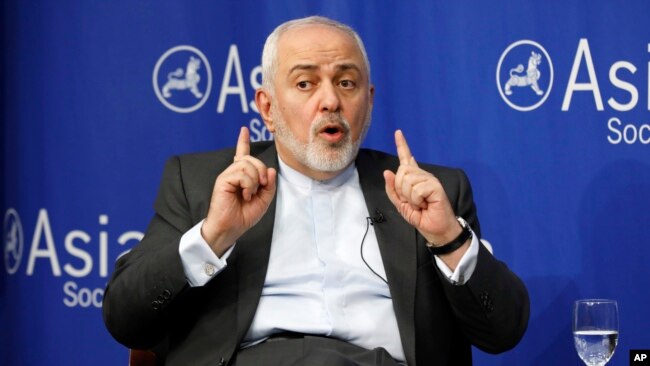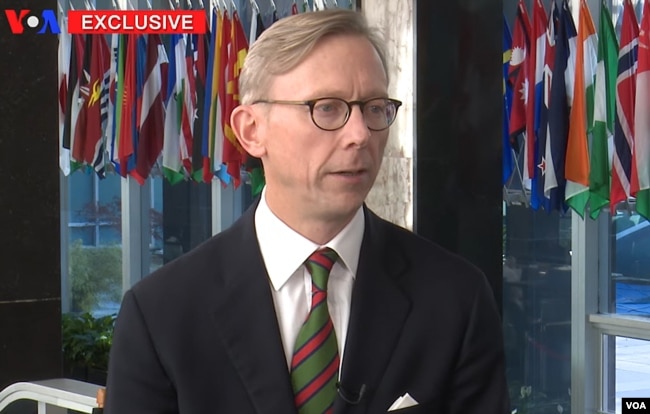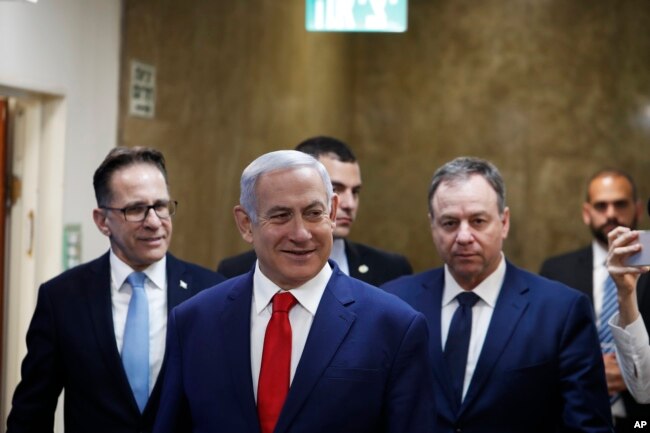VOA – The United States has imposed sanctions on Iran’s metal sectors as tension escalates between the two countries.
The White House statement made the announcement in a statement issued Wednesday, a year after the U.S. withdrew from the 2015 Iran nuclear deal.
Iranian President Hassan Rouhani says his country will suspend its compliance with prohibitions on stockpiles of enriched uranium and heavy water that were imposed as part of the 2015 international agreement on its nuclear program.
With the withdrawal of the United States from the agreement and its imposition of economic sanctions against Iran, Rouhani said Wednesday the remaining signatories have not lived up to their commitments, and instead have allowed the U.S. measures to affect the Iranian oil and banking sectors.
He gave them 60 days to implement changes, and said Iran’s next step would be to resume enriching uranium at higher levels. However, if the other countries work with Iran, Rouhani said his government will resume complying.

Iran Foreign Minister Mohammad Javad Zarif said on Twitter U.S. actions had made it impossible for Iran to continue the way it was, and that the other signatories have “a narrowing window to reverse this.”
U.S. Secretary of State Mike Pompeo said Iran’s announcement to suspend compliance was “intentionally ambiguous,” and the United States would not react until it is determined whether Iran follows through.
“We’ll have to wait to see what Iran’s actions actually are,” Pompeo said after meeting in London with British Foreign Secretary Jeremy Hunt. “They’ve made a number of statements on actions they intend to do in order to get the world to jump. We’ll see what they actually do.”

U.S. Representative for Iran Brian Hook said at a briefing in Washington that Tehran’s announcement is tantamount to blackmail.
“America is never going to be held hostage to the Iranian regime’s nuclear blackmail,” said Hook, a senior adviser to Pompeo. “We are committed to denying the Iranian regime all paths to a nuclear weapon.”
Hook said the U.S. and its allies are targeting Iran’s “vast illicit oil shipping network” and demanding that Iran take multiple actions, including ending production of fissile material, shuttering its heavy water reactor and halting the development and testing of ballistic missiles.
“We are one Iranian-supplied missile away from a regional conflict,” Hook added.
Under the deal it struck with Britain, China, France, Russia, the United States and Germany, Iran had committed to hold no more than 300 kilograms of uranium enriched at 3.67%, with any excess sold on the international market or down-blended back to natural uranium levels.
Iran also agreed to accumulate no additional heavy water, with both limits lasting for 15 years.
In exchange for the limitations on its nuclear program, which also included no enrichment of uranium at higher levels that could be used for nuclear weapons, Iran won relief from sanctions that had badly hurt its economy.
But Iran has continued to struggle economically, especially after U.S. President Donald Trump abandoned the nuclear deal last year and put in place sanctions threatening punishment to those who do business with Iran’s important oil sector and its banks. Last week, the United States ended waivers that had allowed some of Iran’s biggest oil buyers to continue their purchases.
The U.N.’s nuclear watchdog agency has certified in multiple reports that Iran was abiding by its pledges under the agreement. Trump has long objected to the deal, particularly that it did not address Iran’s ballistic missile program.

Another chief critic, Israeli Prime Minister Benjamin Netanyahu, responded to Iran’s announcement by vowing his government would not allow Iran to obtain a nuclear weapon.
Iran says its nuclear program was only for peaceful purposes, and that it has the right to develop the missiles as part of its national defense.
China expressed its support for the nuclear agreement, with a Foreign Ministry spokesman calling on all parties to uphold the deal and saying China opposes U.S. imposition of unilateral sanctions.
 Shabtabnews In this dark night, I have lost my way – Arise from a corner, oh you the star of guidance.
Shabtabnews In this dark night, I have lost my way – Arise from a corner, oh you the star of guidance.


